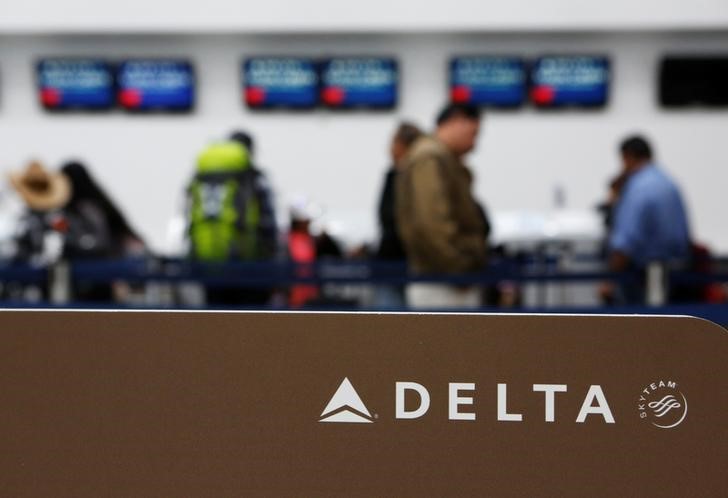On Tuesday, UBS resumed coverage on Delta Air Lines (NYSE:DAL) with a positive outlook, issuing a Buy rating and setting a price target of $88.00 per share.
The firm anticipates Delta Air Lines to capitalize on its premium services, expand available seat miles (ASMs), and utilize its leading loyalty program to drive mid-single-digit percentage revenue growth in 2025 and 2026. This growth is expected to result in margin expansions of 160 basis points in 2025 and 40 basis points in 2026.
UBS forecasts earnings per share (EPS) for Delta Air Lines at $7.86 and $8.83 for the years 2025 and 2026, respectively. These projections suggest an 11% and 8% potential increase over the consensus estimates. The firm's optimism stems from the potential for industry revenue per available seat mile (RASM) to exceed their model assumptions of 3.4% for 2025 and 2.5% for 2026 if industry capacity growth remains lower than usual.
The analysis by UBS highlights the current disparity in profitability among U.S. airlines, noting that while low-cost carriers are operating at low single-digit operating margins, or worse, Delta Air Lines and select industry participants like United Airlines (NASDAQ:UAL) and Alaska Air Group (NYSE:ALK) are maintaining high single-digit margins. According to UBS, this significant variance in profitability could lead to slower-than-average capacity growth, which may support favorable industry pricing going forward.
Delta Air Lines' stock rating upgrade and price target by UBS reflect the firm's confidence in the airline's ability to outperform in the coming years. The company's strategic positioning and industry dynamics play a key role in UBS's positive outlook for Delta Air Lines' financial performance.
In other recent news, Delta Air Lines has demonstrated strong financial resilience and strategic growth. The company reported a robust Q3 performance, surpassing initial guidance, with nearly $3 billion in free cash flow this year and double-digit operating margins. Notably, Delta's yearly profitability is projected to account for half of the industry's total profits. TD (TSX:TD) Cowen reaffirmed its Buy rating on Delta, expressing confidence in the airline's strategic direction and growth areas such as premium services, loyalty programs, international expansion, and corporate travel.
Delta also anticipates full-year earnings to be near the midpoint of $6-$7 EPS guidance and is planning to present an updated long-term financial framework at an upcoming Investor Day. Furthermore, the airline introduced new Delta One Lounges and DeltaSync technology on over 330 aircraft and expanded free Wi-Fi, covering over 90% of domestic flights.
InvestingPro Insights
Delta Air Lines' recent performance and financial metrics align well with UBS's positive outlook. According to InvestingPro data, Delta's P/E ratio stands at 8.89, indicating that the stock is trading at a relatively low earnings multiple. This supports UBS's view that there's potential for stock price appreciation.
InvestingPro Tips highlight that Delta is trading at a low P/E ratio relative to its near-term earnings growth, which resonates with UBS's projections of EPS growth in 2025 and 2026. Additionally, Delta's status as a prominent player in the Passenger Airlines industry underscores its ability to capitalize on premium services and loyalty programs, as mentioned in the UBS analysis.
The company's strong financial performance is evident in its revenue of $60.31 billion over the last twelve months, with a revenue growth of 5.32%. This aligns with UBS's expectation of mid-single-digit percentage revenue growth in the coming years. Delta's operating income margin of 10.39% also supports UBS's observation about the airline maintaining high single-digit margins compared to its low-cost competitors.
Investors seeking more comprehensive insights can access additional InvestingPro Tips, with 11 more tips available for Delta Air Lines.
This article was generated with the support of AI and reviewed by an editor. For more information see our T&C.
